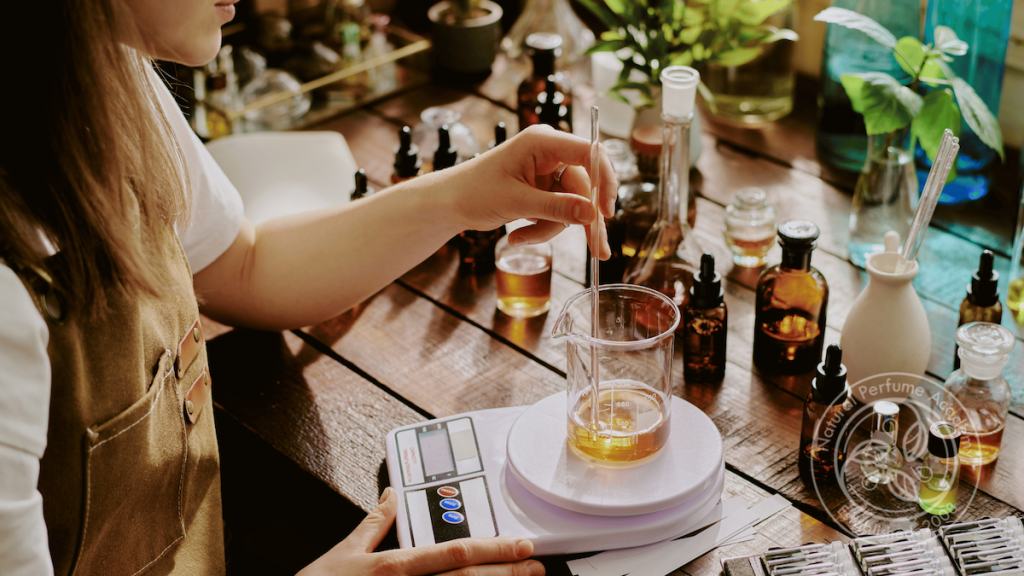
🧴 Natural Perfume Academy Diploma Course: In-Depth Breakdown
Welcome to the CPD-Certified Natural Botanical Perfumery Diploma Course at the Natural Perfume Academy (NPA), est. 2008.
Our Diploma Course takes you on a comprehensive journey through the art and science of natural perfumery, combining ancient traditions with modern expertise. This self-paced programme allows you to dive deeply into each module, supported by expert guidance and a course framework shaped by renowned figures such as Ane Walsh, Justine Crane and Ruth Ruane. Read the Reviews
Course Structure at a Glance
- 12 Topics covering everything from the history of natural perfumery to final submissions.
- Hands-on mentorship to guide you through practical exercises.
- Comprehensive resources to build your own perfumer’s studio.
- Final Certification upon successful completion.
Topic 1: History of Natural Botanical Perfumery
💡 Explore the rich history of perfume, spanning over 4,000 years.
From ancient Egypt to modern natural perfumery, this module dives into how scent has influenced culture and spirituality throughout history. You’ll also be introduced to Conscious Smelling Activities and begin your Perfume Journal.
Key Highlights:
✅ Introduction to conscious smelling.
✅ Begin your Perfume Journal.
✅ A brief, honest look at the evolution of modern perfumery.
Topic 2: Safety in Natural Perfumery
💡 Learn the essential safety standards for working with natural materials.
This module covers key safety assessments and guides you through basic life-cycle and environmental impact assessments. Discover safe usage levels for natural ingredients and how to comply with global safety regulations.
Key Highlights:
✅ Essential safety protocols.
✅ Environmental impact awareness.
✅ Resources for fragrance safety standards.
Topic 3: Chemistry of Natural Materials Overview
💡 Understand the chemical building blocks of natural raw materials.
In this module, you’ll learn about the natural compounds responsible for the scents we love. Explore how chemistry, scent, and memory are interconnected.
Key Highlights:
✅ Faux Carnation note exercise.
✅ Basic chemistry for natural perfumers.
✅ Understanding scent and memory.
Topic 4: The Perfumer’s Studio & Resources
💡 Set up your own workspace with the right tools and materials.
Learn how to organize your perfumer’s studio efficiently and effectively. You’ll receive a detailed guide on where to source tools, materials, and authentic natural ingredients.
Key Highlights:
✅ Studio setup guide.
✅ Growing a garden for perfumery.
✅ Sourcing tools and ingredients.
Topic 5: Natural Raw Materials
💡 Expand your perfumer’s palette with hundreds of natural materials.
Explore the diverse world of botanical ingredients used in perfumery today. Learn how to classify notes within a composition and source reliable, authentic materials.
Key Highlights:
✅ Understanding fragrance notes.
✅ Reliable supplier network.
✅ Ethical sourcing practices.
Topic 6: Evaluating Raw Materials
💡 Develop your skill in evaluating natural ingredients.
A vital skill for any perfumer! This module teaches you how to properly dilute, evaluate, and categorize natural raw materials before using them in compositions.
Key Highlights:
✅ Master dilutions and evaluations.
✅ Learn how to classify materials.
✅ Build your evaluation kit.
Topic 7: The Perfumer’s Stillroom
💡 Explore advanced extraction methods to create your own aromatic materials.
From enfleurage to tincturing, learn how to make your own botanical extractions. These techniques will help you customize your materials and take your perfumery to the next level.
Key Highlights:
✅ Enfleurage technique.
✅ Tincturing and maceration.
✅ Creating your own raw materials.
Topic 8: Journaling Your Perfume Creations
💡 Keep detailed records of your inspirations and creations.
In this module, you’ll learn how to navigate your creative path by jotting down ideas, formulating on paper, and maintaining your records. Plus, you’ll receive Justine’s Perfume Cookbook to inspire your blends.
Key Highlights:
✅ Creative exercises.
✅ Justine’s Perfume Cookbook.
✅ Keeping detailed records.
Topic 9: A Study in Fragrance Families
💡 Dive into the world of fragrance families.
Discover the 11 fragrance families in detail, from Oriental to Hesperides. You’ll learn how to recognize, create, and discover your own signature blends.
Key Highlights:
✅ Detailed exploration of fragrance families.
✅ Developing your own fragrance preferences.
✅ Signature scent discovery.
Topic 10: Perfume Formulation
💡 Master the art of creating balanced, complex perfumes.
With guidance from your teacher, you’ll learn how to write a perfume brief, clarify compositions, and make solid perfumes.
Key Highlights:
✅ Writing a creative brief.
✅ Clarifying your perfume compositions.
✅ Creating custom perfumes.
Topic 11: Branding & Packaging
💡 Learn how to bring your creations to market.
This module covers the fundamentals of branding and packaging in the natural botanical perfumery world. Get feedback on your branding ideas and work closely with your mentor.
Key Highlights:
✅ Branding essentials for perfumers.
✅ Marketing your natural perfumes.
✅ Personalised feedback.
Topic 12: Finals & Certification
💡 Submit your final creations and receive personalized feedback.
In this final topic, you’ll submit your end-of-course essay along with your signature perfume for evaluation. Receive a Certificate of Completion and detailed feedback from your mentor.
Key Highlights:
✅ Essay submission.
✅ Creative assignment evaluation.
✅ Personal mentorship.
Why Choose the Natural Perfume Academy?
Since 2008, we’ve guided students from all over the world in their journey to becoming Certified Natural Perfumers. Our platform offers:
✅ Hands-on mentorship.
✅ Global community and networking opportunities.
✅ Access to a safe and supportive learning environment.
✅ CPD-Certification for credibility.